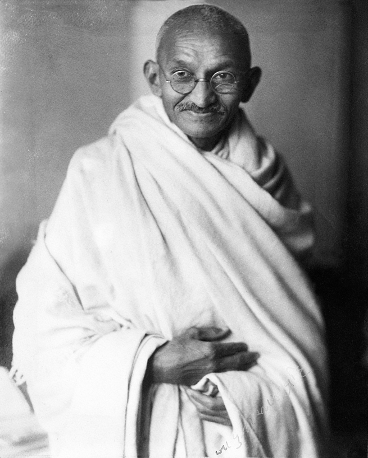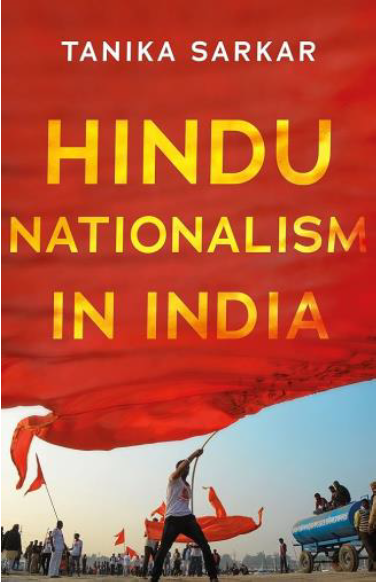
In this last part of our series, and in a bid to harness a broader conceptual reference of decoloniality beyond the Latin American and African decolonial thought, we can draw some key perspectives in this regard from Hindu nationalism as a politico-ideological and philosophical concept seeking to revitalize a national identity drawing inspiration from some fundamental ancient texts of Hindu civilizational ethos.
Hindu nationalism as an ideology sought to recover a sense of identity since the privileging of Western thought processes led to a situation whereby Hindu civilizational ethos lost its salience thus necessitating the reinvention of traditions by drawing upon ancient texts and also practices which were not only repositories of knowledge but also sources of emotional gratification and strength.
Philosophically, “Hinduism is a devotional path to realize purusarthas; empirically, it is a cumulative collection of rituals, faiths, beliefs and practices that have been upheld over the centuries, although its ancient roots are traditionally seen in the cultures of the Indus Vally civilization and the Vedic age. It is thus argued that local traditions became integral to Hinduism through ‘processes of Sanskritization, whereby a regional deity [along with the local practices, gets] identified with pan-Indian gods [leading to] processes of Brahminization supportive of the adoption of high caste rituals by many communities.”
Hindu nationalism both has organic roots in India’s socio-psychological inclinations and also an epistemological drive as Dayananda Saraswati’s Satyarth Prakash (1875) helped the Hindus rediscover their intellectual past in the Vedic texts, however, although the Hindu nationalists justified their key endeavor as attempting to rejuvenate the Hindu community, it was an inspirational rather than an exclusionary drive.

Some of the Hindu ancient texts include; the Bhagavad Gita upon which Gandhi modelled his non-violent protest, the Vedas and Upanishads which are intellectually persuasive texts and politico-ideologically effective towards galvanizing a sense of solidarity, belonging and hence India’s political freedom was hinged upon Hindus regaining and directing their collective strength.
The socio-political ideas of Dayananda Saraswati (1824-1883), Vivekananda (1863-1902), and Aurobindo (1872-1951) laid the ideological foundations of Hindu nationalism in a bid to create and consolidate a strong India based on her rich civilizational intellectual heritage thus ancient Hindu texts were repositories of knowledge which attempted to remind colonized Hindus of the past when they created knowledge for the world which was lost due to peculiar socio-historical circumstances. This is not merely a retreat to the past but rather the Vedas or Bhagavad Gita or Upanishads “represented a source of energy for a nation that needed to be revitalized in the colonial context.”
Crucially too, “Hindu nationalist ideas were primarily the result of an intellectual unease that these thinkers confronted when the Enlightenment philosophy appeared to have wider acceptability among participants in the anti-British campaign… the championing of militant Hinduism was not a dividing strategy, as is accused by the opponents of Hindu nationalism, but rather a natural protestant endeavor at a time when the rich religio-social texts of India’s ancient past were no longer widely recognized as an important source of wisdom.”
Hindu nationalism proffers perspectives for decoloniality in the sense that Western knowledge encapsulated in Enlightenment ideals was deemed the only significant source of knowledge or better still the colonizer makes theory while the colonized lacks the ability to make theory. This is a colonial prejudice deconstructed by decolonial thought and Hindu nationalism claims that ancient Hindu texts are also sources of knowledge that galvanized the anti-imperialist struggles against the British in India.
The major point highlighted by the ideological foundation of Hindu nationalism is that decoloniality does not necessarily have to be framed as reverting to a glorious epistemological past but rather we read the past in the perspective of the present as mutually reinforcing temporalities as opposed to understanding the past and present eras as diametrically opposed thereby juxtaposing one against the other: the former is good while the latter is bad. This significantly contributes towards the debate on decoloniality in the sense that we think of the concept of decoloniality as a temporal phenomenon: how to conceptualize the relationship between the past, present, and future.
Also, this evokes more questions on whether decoloniality is an eternal process in a post-colonial context like Africa or Asia among others or whether decoloniality has a temporal limit which means that it is not an eternal process but is constrained by time for which this endeavor runs its course. However, if this is the case who sets this temporal limit and how can we collectively gauge that a reasonable degree of success has been registered henceforth warranting the premise or even assumption that the process has a limit?

My intervention and concluding remarks
I will sum up the key issues presented in these series concerning the debate on decoloniality as follows:
Firstly, Mignolo as a major proponent of the Latin American decolonial school argues that there is a need to decolonize knowledge from Western hegemony thereby unveiling other forms of knowledge. Secondly, Ngugi claims language and culture are the purveyors of African culture rendering them significant in Africa’s decoloniality project. Thirdly, Mamdani adds to this debate by redefining the conceptual problem as the institution of the university where the aspect of language functions as a means to a decolonial end rather than an ultimate end in itself.
Herein, the major question is: How to decolonize the university in an African setting? These series contribute to the debate by asking: How can we understand the concept of decoloniality?
Our main preoccupation has been illustrating the different aspects constituting the conceptualization of decoloniality. These are; language and culture, the African university as a decolonial site and the politico-historical legacy of colonialism. The overriding theoretical question has been: How should decoloniality be conceptualized? In this regard, Afrikaans and Kiswahili serve as liberatory elements comprising the centrality of African languages within Africa’s decolonialization strides.

The African university model framed as a colonial project depicts decoloniality as an institutional endeavor necessitating the need to nurture institutional capabilities to theorize from a non-Western context as previously quoted in Mamdani’s works. Pillay’s critique of Latin American decolonial theory unravels the exigency to reconceptualize decoloniality beyond the colonial matrices of power or coloniality to also consider the unique context of how African societies were ruled through indirect rule system of governance which cemented white minority rule over black majority populations.

I centrally argue that there is no single self-sufficient way to conceptualize decoloniality, however, it should be understood in a holistic way. This means decoloniality is not exclusively an intellectual or epistemic project but rather it also has institutional complexities, components of geo-political power, temporal dynamics and the politico-historical legacy of colonialism in Africa is also a noteworthy aspect. Simply put, decoloniality can be understood in a multiplicity rather than in a singularity frame.
The writer is a Ph.D. Fellow at the Makerere Institute of Social Research (MISR), Makerere University. These thoughts, originally titled: Genealogy of African Debates on Decoloniality: A Synthesis of Afrikaans and Kiswahili were first shared with the Cultural Studies Institute, Kampala.
To support The Sword, please contact us via Twitter/X (@thesword_08) or send us an email via theswordug@gmail.com.

